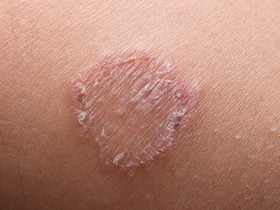Hyperpigmentation is a condition where an area of the skin gets darker than the other surrounding parts of that area. There are several causes of this. Besides, hyperpigmentation is not peculiar to any skin tone or color. However, it is usually more severe and lasts longer on black skin.
Continue reading to understand hyperpigmentation on black skin, its causes, treatment, and preventive methods.
What to know about hyperpigmentation in black skin?

Melanin is a pigment that is present in the skin. Although it is found in most skin, it is of higher concentration in black skin.
There are cases where an excess of the number of melanin forms in the skin, causing an area of the skin to appear darker than its surrounding skin. This condition is referred to as hyperpigmentation.
There are different tissue layers of the skin, the epidermis which is the outermost layer, and the dermis found deeper in your skin. Hyperpigmentation can occur in both layers.
Epidermal hyperpigmentation is easier to treat, although it may take several months. Dermal hyperpigmentation on the other hand is more difficult to treat and can be permanent in some cases.
Hyperpigmentation is a very common condition in black skin. While it is physically harmless, it is usually more severe and long-lasting on black skin. This can cause other issues like psychological stress and also a negative impact on quality of life.
How do you identify hyperpigmentation on black skin?
You can start to suspect you have hyperpigmentation when you notice a spot or area on your skin that is darker than the rest of your skin. The exact color of the spot will depend on what is causing it and the person’s general skin tone. Generally, they appear in these colors: black, tan, purple, brown, dark brown, grey-brown, and blue-grey.













